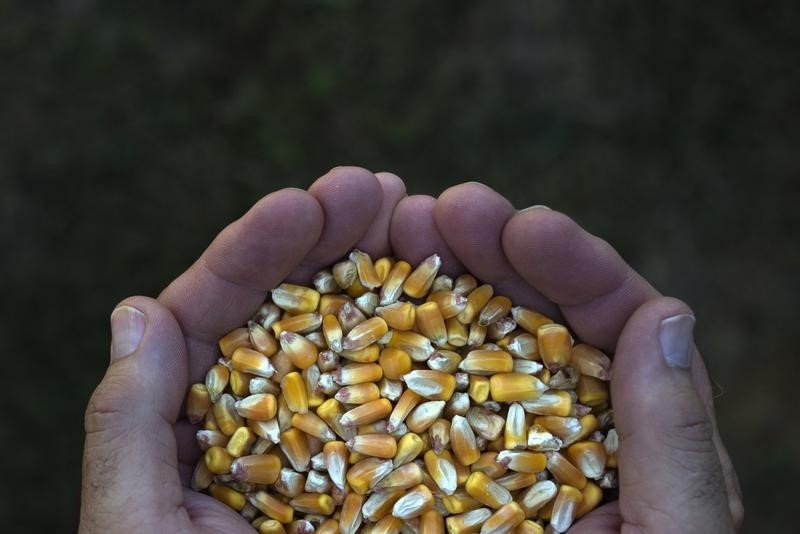Oracle stock falls after report reveals thin margins in AI cloud business
(Bloomberg) -- As Europe’s farmers prepare to spread fertilizers on fields after winter, sky-high nutrient prices are leaving them little choice but to use less and try to pass on the cost down the food chain.
For growers of staples like corn and wheat, it’s the first time they’ve really been exposed to a fertilizer crisis fueled by an energy crunch, export curbs and trade sanctions. It now costs much more to buy chemicals needed for winter crops coming out of dormancy, and the extra expense could prompt smaller spring plantings that make up roughly a third of European grain.
Europe has been hardest hit by fertilizer-plant cutbacks on soaring costs of gas used to run them -- and nutrient prices there remain at a record even as the pressure eased in North America. Europe could face a deficit of about 9% of its annual nitrogen-fertilizer needs in the first half, VTB Capital estimates. Food may get even pricier if harvests suffer or crop prices rise.
Many farmers yet to secure chemicals are either waiting until the last minute in case prices ease, or may spread them more thinly.
In Hungary, nitrogen fertilizer usage will drop around 30% to 40% this season, hurting crop yields, said Gyorgy Rasko, an agricultural economist who has farms in the country.
“If there’s a drought around the end of April and May, the effect could be even more devastating, since nitrogen helps plants survive dry days,” he said.
Nitrogen nutrients are crucial for spring growth in Europe and are used again from February. They’re also the type most affected by Europe’s energy crisis because they’re produced using gas. A first-half shortage of those types may reach up to 7 million tons, VTB said.
While the gas crunch eased lately -- and some firms like Yara International (OTC:YARIY) ASA have returned fertilizer capacity -- it’s still bad enough to keep supply limited.
“Coupled with the lack of imported fertilizers, the impact will be felt even more strongly,” said Romanian fertilizer maker Azomures, which is among those that curbed output. “Crops will suffer in terms of quality and final quantity.”
The fertilizer market also faces wider threats, from export restrictions by Russia and China to sanctions on Belarusian potash output that’s affecting trade routes.
Harvest Risk
Farmers in crop giants France and Germany probably booked about 70% of their nitrogen fertilizer needs for the growing season by year-end, a time when purchases are typically wrapping up, adviser Agritel said. Coverage in Black Sea nations like Ukraine and Romania may be even lower.
It’s still attractive to grow wheat and corn, but using less fertilizer increases risk. Curbing application on wheat by roughly 15% from normal could cut yields about 5% and may also hurt protein content, Agritel analyst Isaure Perrot said.
Some crop yields could be cut in half without nitrogen products, said Zoltan Bige, chief strategy officer at Hungarian producer Nitrogenmuvek. Polish peer Grupa Azoty SA (WA:ATTP) said other risks include a buildup of late orders and potential delivery delays.
Smaller crops would be more bad news for food security, with near-record global prices already squeezing consumers and contributing to faster inflation.
“Grain prices at the moment are enough to compensate for the fertilizer price,” said James Webster, a senior analyst at The Andersons (NASDAQ:ANDE) ANDE Centre in the U.K. “How long that stays the case depends on the future direction of markets. While it compensates, there’s still a hefty bill to be paid.”
